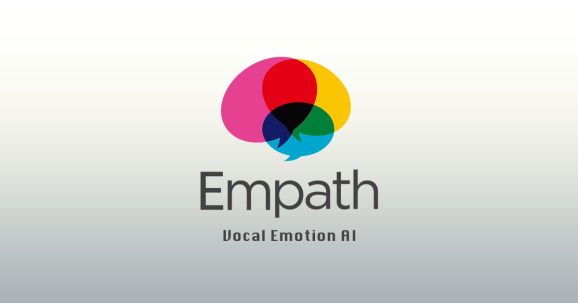
Gauging a person’s emotion from their intonations is the bread-and-butter business of startups Affectiva, Beyond Verbal, Cogito, and Realeyes, not to mention an area of acute study for tech giants like Amazon. The potential upside is enormous: Knowing the precise moment someone becomes frustrated or saddened, say, could inform an intelligent assistant’s response or a customer service rep’s course of action. Alternatively, it might aid in health-monitoring by detecting signs of conditions like dementia, congestive heart failure, and PTSD.
A relatively new entrant in the emotion detection segment is Empath, a Toyko-based startup founded in 2017. Using algorithms trained on tens of thousands of voice samples by Japanese health tech Smartmedical Corp., its staff of roughly 20 people pioneered a platform dubbed Emotion AI. It’s able to automatically detect one of four emotions — joy, anger, calmness, and sorrow — from real-time speech in any language in high-noise environments, in addition to characteristics such as pitch, tone, speed, and “power” (valence).
A range of products fill out its suite, including My Mood forecast, an app which employees can tap to track changes in their emotion and how they correlate with weather patterns. (Team managers see both individual employees’ moods and aggregated team moods). More straightforwardly, Empath’s Web Empath API — which works across Windows, iOS, Android — adds emotion detection to existing apps and services.
I spoke briefly with company representatives at IFA, who asserted that Empath’s advantage over rivals is twofold. The company’s partner roster — which now numbers north of 500, and includes brands like NTT Docomo, Fujitsu, Philips, Lixil, TMJ, Persol, and Marubeni Information — supplies it with high-quality data with which to retrain its algorithms. And because it’s chosen to hone in on a relatively narrow slice of emotions, Empath’s able to achieve higher baseline levels of accuracy and precision.
It’s more than just talk. Empath won 8 pitch contests and it was recently selected as a member of the Japanese government’s J-Startup Program.
Web Empath AI has principally been deployed in call centers so far, where Empath claims it’s reduced supervisor overtime by 20% while boosting sales conversion by nearly 400%. But in the future, the startup says its solutions could find their way into video games, robots, and even vehicles. To this end, Empath recently partnered with toy company Bocco to create a sentiment-detecting messaging animatronic aimed at children, and with Utaka to produce a lamp that cycles through hues corresponding with emotions.
Whatever Empath’s next move, it’s likely to be a lucrative one. Allied Market Research pegs the market’s worth in 2023 at a whopping $33.9 billion globally, driven by the surging popularity of wearables, internet of things devices, and smartphones.





























